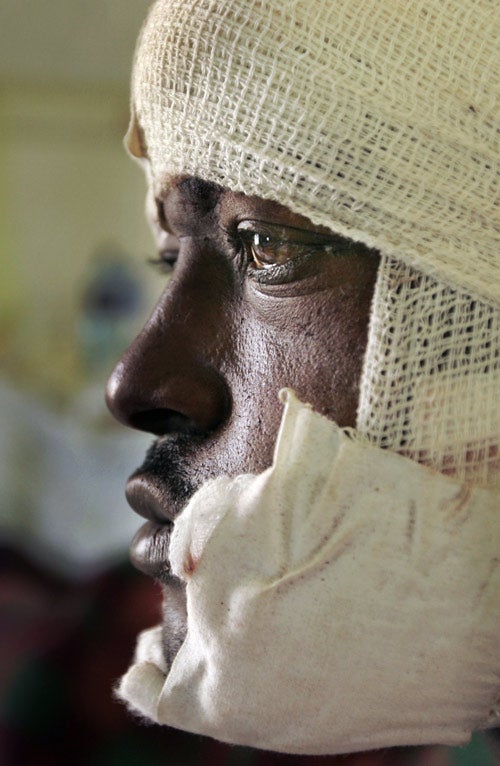Dozens are killed as Kenya erupts into violence once more
After 48 hours of bloodshed, former UN chief calls for investigation into 'systematic abuse' of human rights

Support truly
independent journalism
Our mission is to deliver unbiased, fact-based reporting that holds power to account and exposes the truth.
Whether $5 or $50, every contribution counts.
Support us to deliver journalism without an agenda.

Louise Thomas
Editor
Kofi Annan, the former UN secretary general, yesterday called for an investigation into "gross and systematic abuse of human rights" in Kenya's Rift Valley after 48 hours of bloodshed that left at least 25 people dead.
Shots were fired yesterday in the Rift Valley town of Nakuru, the latest centre of violence, where men with bows and arrows, machetes and wooden sticks roamed the streets as gangs from different tribes burned down hundreds of homes and attacked residents. The charred remains of 16 people were delivered to the town's mortuary yesterday. Many also had deep wounds from machetes. Doctors said a further nine bodies had been recovered on Friday.
More than 700 people have now been killed since President Mwai Kibaki was re-elected in a deeply flawed poll at the end of December. Much of the past week had been calm, but on Friday violence erupted once again, this time in Nakuru, a town of 300,000 people about three hours north-west of Nairobi.
Mr Annan, who has spent the past week in Kenya leading mediation efforts between Mr Kibaki and his beaten rival, Raila Odinga, said the violence had ceased to be about the election, and was becoming "something else". He continued: "Let us not kid ourselves that this is an election problem. It is much broader and much deeper. Certain groups are being targeted."
Alongside the former Tanzanian president, Benjamin Mkapa, and Nelson Mandela's wife, Graca Machel, Mr Annan went to the towns of Eldoret and Molo in the Rift Valley yesterday to visit those displaced by the unrest. More than 100,000 people have been forced to flee their homes, with most now living in makeshift camps. The former UN chief described the visit as "heart-wrenching".
Much of the past month's violence has been directed at Mr Kibaki's Kikuyu tribe, with gangs of young men drawn from tribes that backed Mr Odinga driving them off their land.
The attacks in Nakuru are the first real signs that some Kikuyus have begun to fight back. Young Kikuyu men set up roadblocks around the town and attacked journalists trying to cover the violence. Nakuru, a largely Kikuyu town, had, until Friday, escaped the worst of the violence. Many of those forced to flee Eldoret, 75 miles further north, had sought refuge there.
Mr Annan is likely to stay in Kenya for at least another week as he attempts to hammer out a political solution to the crisis. Mr Odinga has said he may be willing to share power in a coalition, but has called for fresh elections. Mr Kibaki has, so far, shown little sign of compromising. Despite also calling for a government of national unity, he has appointed his allies to all the key cabinet positions.
Mr Kibaki, whose government has so far been recognised by just four other African states, will attend an African Union summit in Addis Ababa this week. Analysts and diplomats will be closely watching the reception he gets from fellow leaders. The opposition is also planning to send a delegation to the summit to lobby other countries.
Subscribe to Independent Premium to bookmark this article
Want to bookmark your favourite articles and stories to read or reference later? Start your Independent Premium subscription today.
Join our commenting forum
Join thought-provoking conversations, follow other Independent readers and see their replies
Comments